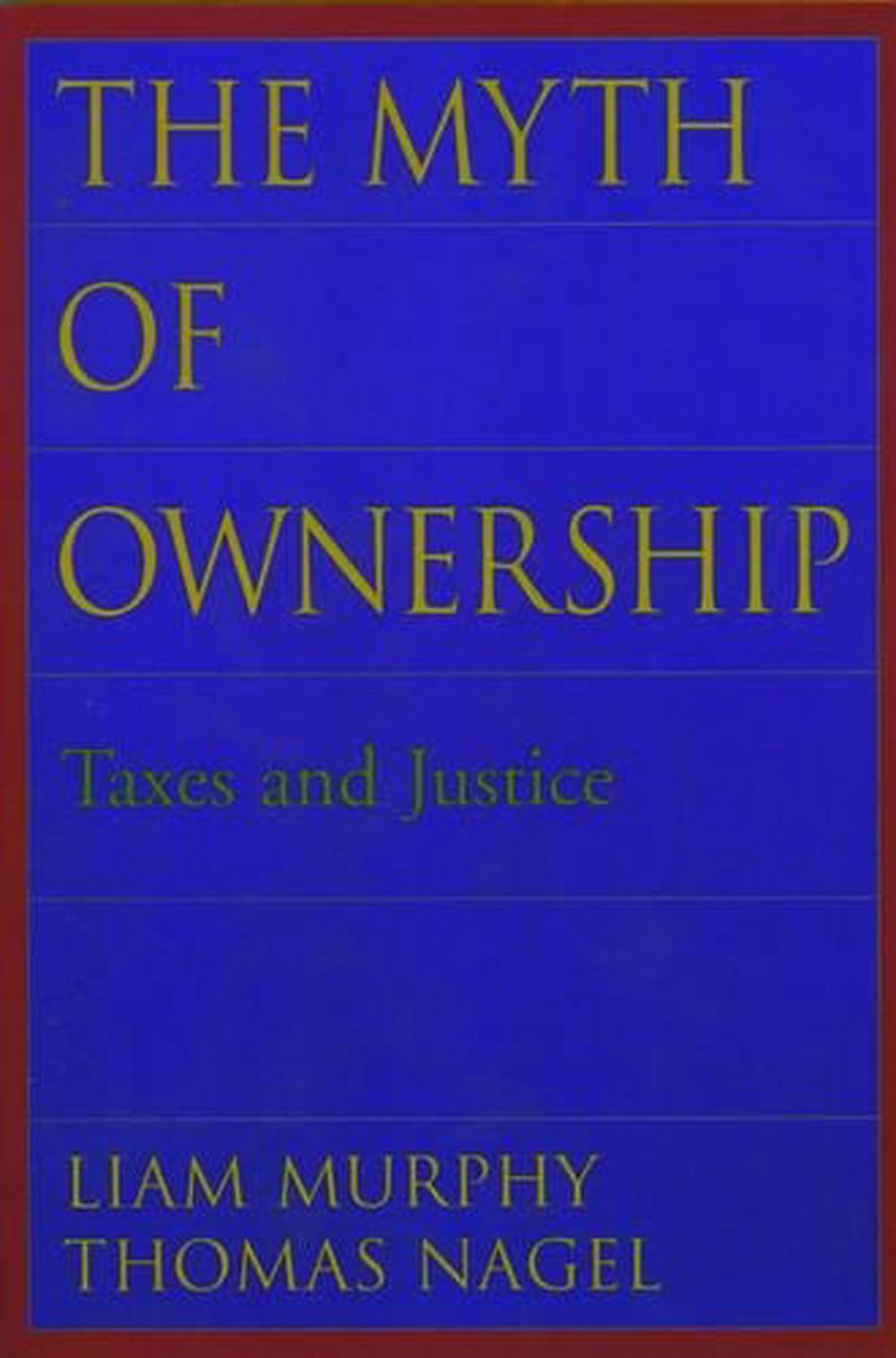
The Myth of Ownership
taxes and justice
$43.69
- Paperback
240 pages
- Release Date
9 December 2004
Summary
Rethinking Taxes: Property, Justice, and the Social Contract
In a capitalist economy, taxes are the most crucial tool for enacting a vision of economic and distributive justice. Taxes ignite strong feelings, driven by both economic self-interest and differing concepts of fairness.
Murphy and Nagel use the conventional nature of private property as their foundation, demonstrating how taxes must be assessed as part of the broader system of property rights they help define. The…
Book Details
| ISBN-13: | 9780195176568 |
|---|---|
| ISBN-10: | 0195176561 |
| Author: | Thomas Nagel, Liam Murphy |
| Publisher: | Oxford University Press Inc |
| Imprint: | Oxford University Press Inc |
| Format: | Paperback |
| Number of Pages: | 240 |
| Release Date: | 9 December 2004 |
| Weight: | 299g |
| Dimensions: | 164mm x 207mm x 19mm |
You Can Find This Book In
What They're Saying
Critics Review
“The thoughts in this book deserve examination, especially the views of Nagel and Murphy on the self-interest each taxpayer reasonably has in the social justice purchased by hard-earned money….[They] offer ideas that would improve the national debate.”–David Cay Johnston,New York Times Book Review”Murphy and Nagel claim that pretax income is a myth, and, as such, has no moral significance…. The Myth of Ownership significantly increases the sophistication of the discussion [fairness in taxation].“–Michigan Law ReviewTheir research is impressive, their reasoning precise…. should be on every public economics reading list.”–Journal of Economic Issues”Murphy and Nagel claim that pretax income is a myth, and, as such, has no moral significance…. The Myth of Ownership significantly increases the sophistication of the discussion [fairness in taxation].“–Michigan Law Review”The thoughts in this book deserve examination, especially the views of Nagel and Murphy on the self-interest each taxpayer reasonably has in the social justice purchased by hard-earned money….[They] offer ideas that would improve the national debate.“–David Cay Johnston,New York Times Book Review”The Myth of Ownership…should be read by all who wish to enter the discussion regarding taxes.“–William Michell Law Review”The authors very effectively argue that the taxation, such as the benefit and ability-to-pay principles, fall victim to a fatal defect. Justice in taxation cannot be assessed apart from a general theory of property rights.“–The Mises Review”The best book by far on the political morality of taxation. In a clear and compelling analysis, Murphy and Nagel expose the mistake of thinking that individuals own their pretax income and they examine the social benefits of justifiable tax policy. Taking this book’s message to heart would transform contemporary democratic politics.“–Amy Gutmann, Provost and Laurance S. Rockefeller University Professor of Politics, Princeton University”This magnificent contribution from the distinguished philosophers Liam Murphy and Thomas Nagel reminds us that fundamental issues of justice lie at the core of often mundane debates about taxation. The provocative thesis of The Myth of Ownership that the tax system helps create, rather than conforms to, the overall system of property rights has profound policy implications. I highly recommend this engaging book and the rethinking of first principlesit inspires to anyone interested in taxation and the role of government in society and the economy.“–Joel Slemrod, Paul W. McCracken Collegiate Professor of Business Economics and Public Policy, University ofMichigan
About The Author
Thomas Nagel
Liam Murphy teaches law and philosophy at New York University. He is the author of Moral Demands in Nonideal Theory.
Thomas Nagel teaches law and philosophy at New York University. He is the author of Moral Questions, Equality and Partiality, and The Last Word.
Returns
This item is eligible for free returns within 30 days of delivery. See our returns policy for further details.




